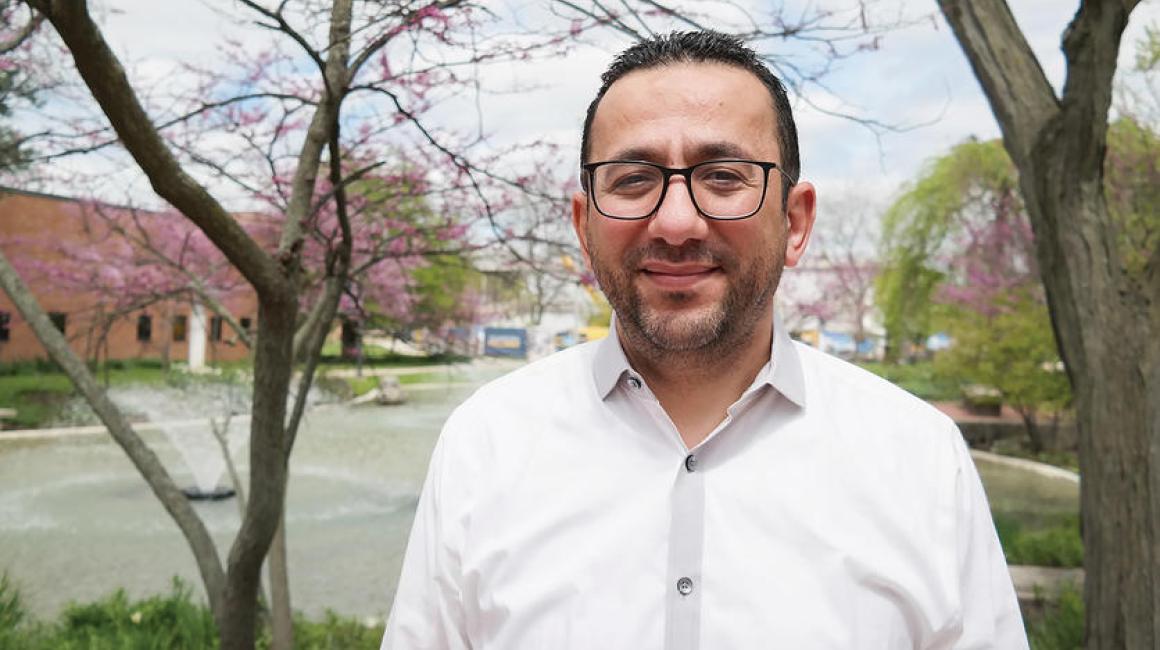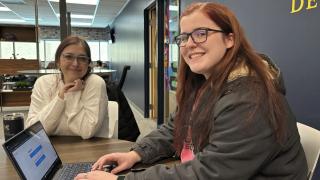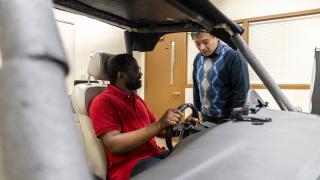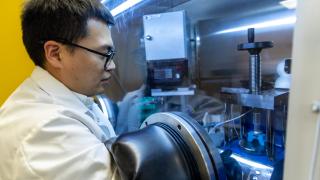
If you want to get a quick sense for what makes professor Brahim Medjahed a special teacher, get him talking about his favorite course at UM-Dearborn. It’s an introductory computer science class that attracts everyone from fledgling coders to art and biology majors. As such, it demands a special talent for making the material accessible to everyone. Case in point: In an early class exercise, Medjahed hands students a program that’s functional but totally inefficient, redundant and generally inelegant, and challenges them to “make it pretty.”
“I want my students to look at it as a piece of art,” Medjahed explained. “Thinking of it that way pushes them to think beyond the syntax or the technical aspects of the code and see its underlying architecture: the spacing, indentations, organization, the included comments that ask them to explain why something is the way it is.”
His knack for engaging diverse audiences is just one reason Medjahed has been racking up the honors. One of his most recent is also one of his most prestigious. In May, he was recognized by the Michigan Association of State Universities as one of three Distinguished Professors of the Year for his “significant impact on undergraduate student learning.” He’s the first UM-Dearborn professor to receive the award.
Earlier in 2019, he also earned an appointment as an associate dean for academic programs and initiatives at U-M’s Rackham Graduate School. In that space, his charge is to enhance the student experience in four new Ph.D. engineering programs at UM-Dearborn and help launch a new Doctor of Engineering program (D.Eng.) emphasizing applied research. He also sees an opportunity for UM-Dearborn to break the mold in its approach to graduate studies — the heart of which could involve integrating undergraduate and graduate education and building a research culture that thrives on diverse, interdisciplinary teams.
“Ten years down the road, I would love for other universities to be able to look to us as an example of how a small campus that’s traditionally focused on teaching can combine that with a thriving research culture.”



